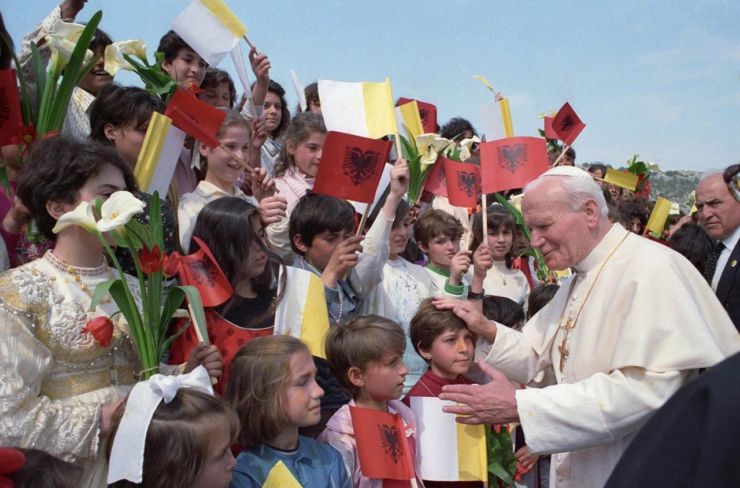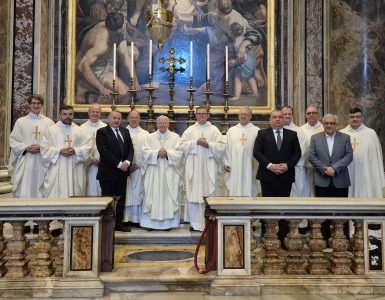The life of Karol Wojtyła best expresses the essence of what is truly embodied by a blessed man, poor in spirit: that is, humility of heart, a willingness to surrender himself completely into the hands of God. The Evangelical Blessing as openness to proclaiming a new hope, to proclaim eternal life, but not so that the vocation to future life be associated with a lack of interest in the world and the problems of man. Blessing is as a way of life, as a call to greater happiness, because true Christian life cannot be equated with enforcing laws, with moralism as an end in itself, with over-attachment to things. Blessing as a testimony, but a testimony inscribed in life, making it one, and the one that knows how to show God’s presence in the affairs of everyday life.
Blessings are therefore not a matter of the past, but – this is what John Paul II testified – they the offer of life even today and for all, combining with God’s experience, with positive morality and with the call to a concrete life of the Gospel, to be righteous. In the Catechism of the Catholic Church we find a beautiful picture. It says that the Beatitudes “reflect the face of Jesus Christ and describe His love.” Karol Wojtyła did just that. He showed the human face of God. This is the secret of his holiness, on which Pope Francis will place the seal of authenticity on the day of canonization. This holiness is possible for all. It brings people closer to God; because, after all, that’s the point: to live in friendship with Heavenly Father.
With the permission of Cardinal Stanisław Dziwisz – “At the side of the Saint”
St. Stanislaw BM Publishing House, Krakow 2013





